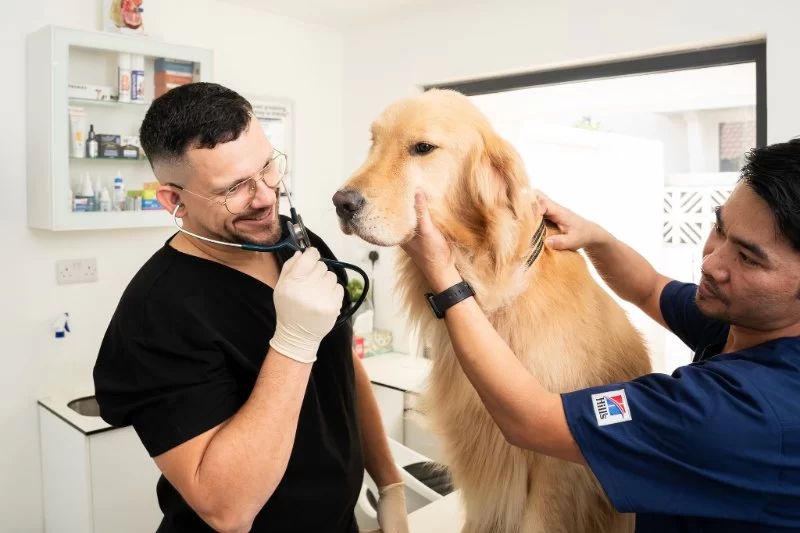- why-dog-diarrhea-should-not-be-ignored - Understanding the Health Risks Behind Loose Stools
- 10-common-causes-of-dog-diarrhea - Vet-Approved Reasons Behind Gastrointestinal Upsets
- real-case-a-curious-snack-gone-wrong - What One Dog Ate and How It Led to an Emergency Visit
- when-you-should-see-a-vet-for-dog-diarrhea - Knowing the Warning Signs That Require Medical Help
- how-hidden-brook-veterinary-supports-gut-health - Trusted Care for Digestive Issues in Dogs
1. Understanding the Health Risks Behind Loose Stools
Dog diarrhea isn’t just a mess to clean up—it can be a symptom of a much bigger health issue. While occasional loose stools can happen from dietary changes or excitement, persistent or severe diarrhea in dogs may signal parasites, infection, allergies, or even life-threatening illness.
In the United States, veterinarians regularly see cases of diarrhea that turn out to be early indicators of serious problems. Knowing how to respond, what may be causing it, and when to seek help can prevent suffering and save lives.
2. Vet-Approved Reasons Behind Gastrointestinal Upsets
Here are the 10 most common causes of dog diarrhea, based on veterinary insights and clinical trends observed nationwide.
2.1 Dietary Indiscretion (Garbage Gut)
One of the leading causes: dogs eating things they shouldn’t. Trash, spoiled food, table scraps, or even mulch can trigger a severe GI reaction. This is especially common in puppies or curious adult dogs.
2.2 Sudden Food Change
Switching your dog’s food too quickly can disrupt their gut microbiome. Always transition gradually over 7–10 days to avoid unnecessary digestive stress.
2.3 Intestinal Parasites
Roundworms, hookworms, whipworms, and giardia can all cause diarrhea. Some are zoonotic, meaning they can pass to humans, making prompt diagnosis and treatment critical.
2.4 Food Allergies or Intolerances
Some dogs develop sensitivities to proteins like chicken, beef, or dairy, causing chronic loose stools, itching, or even ear infections. An elimination diet under vet supervision can help identify triggers.
2.5 Bacterial or Viral Infections
Salmonella, E. coli, parvovirus, and coronavirus can all result in sudden, often bloody, diarrhea. Puppies and unvaccinated dogs are especially vulnerable.
2.6 Stress or Anxiety
Like humans, dogs can have upset stomachs when stressed. Moves, new people, or boarding stays can lead to stress colitis, especially in sensitive breeds.
2.7 Inflammatory Bowel Disease (IBD)
Chronic inflammation of the gut lining causes frequent diarrhea, weight loss, and poor nutrient absorption. IBD requires lifelong management and dietary adjustments.
2.8 Pancreatitis
High-fat foods or underlying metabolic issues can inflame the pancreas, leading to vomiting and diarrhea. Pancreatitis is serious and often requires hospitalization.
2.9 Toxin Ingestion
Common backyard and household dangers include chocolate, xylitol (in sugar-free gum), certain plants, and medications. These can lead to diarrhea, among other symptoms like tremors or seizures.
2.10 Antibiotics or Other Medications
While necessary for infection treatment, antibiotics can disrupt the gut’s good bacteria and lead to diarrhea. Ask your vet about probiotics to pair with prescriptions.
3. What One Dog Ate and How It Led to an Emergency Visit
In 2023, a Golden Retriever named Luna was rushed into an emergency clinic after several bouts of watery diarrhea and vomiting. Her family had recently returned from a camping trip in Oregon, where she was seen nibbling on unknown plants.
The diagnosis: giardia infection from contaminated stream water. Luna needed fluids, anti-parasitics, and a temporary bland diet. Her case highlights how outdoor adventures—even short ones—can expose dogs to hidden dangers.
4. Knowing the Warning Signs That Require Medical Help
While mild diarrhea may resolve on its own with rest and a bland diet, there are certain signs that mean it’s time to visit your vet.
4.1 Diarrhea Lasts More Than 48 Hours
Ongoing diarrhea can lead to dehydration, weight loss, and nutrient deficiencies. Extended symptoms require testing and a treatment plan.
4.2 Presence of Blood or Mucus
Bright red blood or dark tarry stools (indicating digested blood) could be signs of internal bleeding, infections, or serious inflammation.
4.3 Vomiting, Lethargy, or Loss of Appetite
When diarrhea is paired with other symptoms, the situation is more complex and potentially urgent.
4.4 In Puppies, Seniors, or Immune-Compromised Dogs
These groups can deteriorate quickly. Don’t wait—seek immediate care to prevent complications.
5. Trusted Care for Digestive Issues in Dogs
If your dog is experiencing diarrhea, even occasionally, it’s worth getting professional advice to rule out serious causes and ensure proper care. At Hidden Brook Veterinary, we help U.S. pet owners uncover the source of digestive problems through diagnostics, dietary counseling, and compassionate treatment.
Whether it’s managing chronic GI conditions or urgent intervention for dehydration, our veterinary team is equipped to provide accurate insights and personalized care. If you're unsure whether your dog’s symptoms are serious, Hidden Brook Veterinary is your trusted partner in pet health—offering answers, relief, and peace of mind.












